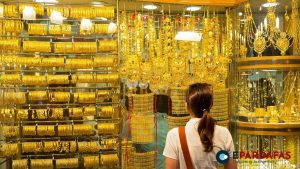
Foreign Investor Confidence in Chinese Stocks Wanes Amid Economic Uncertainty

Foreign investors reverted into net sellers of Chinese stocks in June, amid fading enthusiasm over the government’s rescue package for the struggling property sector.
Some players are still holding out hope for a second rally, but they warn that this will depend on the effective execution of existing policies and signs of stronger support at the Communist Party’s long-awaited third plenum in July — a key session that has a history of altering China’s economic course.
Offshore investors sold a net 44.4 billion yuan ($6.1 billion) worth of A-shares in June through the Connect system between the mainland and Hong Kong, after four consecutive months of net buying since February. June’s net selling marks the seventh-largest amount since the Connect scheme opened in mid-November of 2014, Wind data shows. The most monthly net selling occurred in August last year, when offshore investors unloaded 89.7 billion yuan worth of A-shares via Connect.
Distilled liquor maker Kweichow Moutai and electric appliance manufacturer Midea topped the list of most-sold stocks in June, at 10.9 billion yuan and 6 billion yuan, respectively. On the other hand, Shenzhen-listed electronic components maker Luxshare and telecom parts maker Zhongji Innolight saw the most net purchases in the same period, at 2.6 billion yuan and 1.8 billion yuan, respectively.
The CSI 300, a closely watched index tracking Shenzhen and Shanghai stocks, climbed to 3,690.96 on May 20, the highest level since late September last year. It has since dropped 6.2%, closing at 3,461.66 on Friday. The Hang Seng Index, which tracks Hong Kong stocks with mostly Chinese companies as constituents, has also dropped 9.8% to 17,718.61, down from 19,636.22 on May 20, its high since last August.
Foreign investors are waiting for policy implementation that could address the property woes and light another spark under stocks.
Richard Tang, China strategist and head of research for Hong Kong at Swiss private bank Julius Baer, said the next rally in Hong Kong and China “will heavily depend on the execution of the housing policies by the local government.”
“And I think the market is indeed waiting for the home transaction data to turn around,” Tang said at an outlook event on Tuesday.
Barclays Hong Kong, in a research note published on Thursday, said that its clients have low expectations for major policy stimulus measures going into the third plenum, when some 200 members of the Communist Party Central Committee will meet in Beijing to discuss long-term economic policy.
The general consensus from recent client conversations is that “China has exhausted its options on the property front” since it unveiled a $41 billion lending program to encourage local governments to “digest” excess housing supply on May 17, wrote Barclays analysts Kaanhari Singh and Yingke Zhou in the note.
A broad focus on supply-side reforms at the plenum, such as tech innovation, “will read as more of the same and largely be a non-event for markets,” the client conversations suggest. The bankers added they do not disagree with that view, but cautioned there is “limited room” for a further China sell-off.
Meanwhile, as the stock market struggles, some are looking for safer bets, such as Chinese government bonds. In May, such bonds held by offshore institutions increased by 25.3 billion yuan from April, data from China Central Depository & Clearing shows. Overall, foreign investors were net buyers of 172 billion yuan worth of China onshore bonds in May, data from Bond Connect shows.
Chinese government bonds have outperformed major government bonds including U.S. Treasury bonds in the past few years, said Dong Chen, chief Asia strategist at Pictet Wealth Management.
As many expect China’s central bank to keep interest rates low in the coming years to stimulate the economy, it could push up bond prices. “I still continue to believe the Chinese bonds probably will hold up there, we just thought this [is] expensive compared to others,” Chen said, adding that the Swiss bank is more “positive” on developed market government bonds for higher yields.
- Prime Minister Oli Returns After Official Visit to Thailand and BIMSTEC Summit Participation
- Resident Doctors at Lumbini Medical College Demand Equal Pay and Reforms
- PM Modi in Sri Lanka to Cement Defence, Energy Ties Amid Regional Power Dynamics
- PM Modi Meets Sri Lankan President Dissanayake in Colombo, Receives Historic Welcome












Comments